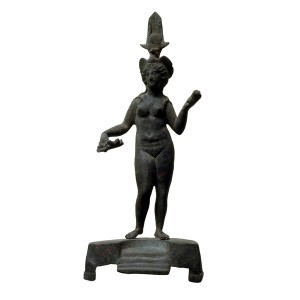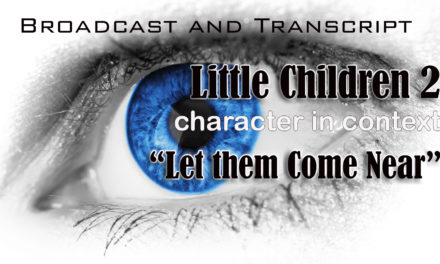 Ok, this one was sent to me by a friend and it made me angry – angry because I was able to debunk it without even having studied the subject, that’s how ridiculous it was. This is the sort of thing that makes both Jews and Christians turn up their noses at anything Hebrew Roots or Messianic and who can blame them?
Ok, this one was sent to me by a friend and it made me angry – angry because I was able to debunk it without even having studied the subject, that’s how ridiculous it was. This is the sort of thing that makes both Jews and Christians turn up their noses at anything Hebrew Roots or Messianic and who can blame them?
#1. Was Byblos a Roman goddess at all. No, she wasn’t. Neither was she a goddess mentioned in any other pantheon. Not even a goddess of “among other things.”
#2. Did the Romans have a deity of writing and libraries. No, not really. They weren’t so much focused on literature as with laws and virtues. Minerva was a goddess of wisdom and the arts and Apollo was a god of intellect and knowledge – but neither of them seemed to possess a library card.
#3. Was Byblos called Kypris – well, no because Byblos wasn’t a goddess, but Aphrodite was called Kypris on the island of Cyprus, which was a cult center for her (rumored to be her birthplace). Was Aphrodite a goddess of libraries? Um no – try love, pleasure and procreation – oh and beauty. She spent too much time primping in front of the mirror and in bed, and not much time reading, I guess.
#4. Is there a city named Byblos. Yes! In Lebanon on the Mediterranian (biblical Phoenicia). Along with Damascus, authorities have suggested that it is either the or one of the oldest inhabited cities on earth.
#5. Was it built for a “well loved” goddess. Um, no. In fact it is mentioned by the 12th Century BC author Sanchuniathon (who I have mentioned in previous blogs) as the first city built by Cronos, one of the Titans – meaning that the Greeks, who recognized the Titans as the precursors to their own gods, would never have suggested that a Titan would build a city to a goddess who had not yet even come into existence.
#6. Who was the main deity of Byblos? That would be Ba’alat Gebal – The Lady of Byblos. She was associated with the Semitic goddess Astarte and Aphrodite – mother goddesses, not wisdom goddesses. Here is her picture:

#7. What was the origin of the word Bible? It quite simply comes from the fact that the city of Byblos was where Egyptian papyrus (the ancient source for paper-making) was imported into Greece, which would be made into scrolls and later books. That’s it. Nothing nefarious.
#8. Did anyone have a goddess of libraries and writing? Yes, the Egyptians did – Seshat – but I find no evidence to tie her to any of the mother goddesses cited in the meme. As they served entirely different functions, it would be entirely out of character.
This meme is built on fallacies – during the Roman rule of Byblos, it was a center of Adonis worship. Why would Romans build a city to a goddess of libraries millennia before the Romans as a viable people even existed? It is fiction that doesn’t even have a shred of logic, much less even the slightest bit of truth.
Look, there are people out there who want to influence you, keep you in fear and try to “set you apart” from the world and they aren’t very honest or diligent at times about how they go about it. A pretty meme can contain ridiculous lies that haven’t been personally investigated and will be used to terrify people into not even knowing which words they can and cannot speak. A lot of people out there are quick to believe everything they read on the internet or in debunked books but won’t take an iota of time to make sure it is actually true before telling you all about it. Every language on earth contains words that are derived from, or sound like, words that are of pagan usage in another culture. Ancient peoples deified everything, from functions to attributes. Everything was of divine origin – we can’t talk about anything (not even in hebrew) without calling up things that pagans ascribed divinity to. So we just need to stop this wild goose chase.
On top of that – a lot of these words that people claim to know the pronunciation of are from reconstructed languages and best guesses. We don’t even know what the words they used sounded like – we have reconstructed the languages for the purpose of understanding them, not for the purpose of going back in time and actually thinking they would understand us if we spoke with them.
Calling on the name of a false god isn’t the same as saying the name of that god. We couldn’t even obey the commandment to read the Torah out loud every seventh year if that was the case. Calling on the name of a god required swearing oaths in his or her name, praising them, or doing something to increase their reputation in some way. Pronouncing their name does not qualify as calling on “their name” – which meant to call upon “their authority” and “their character.”
Too many people are out there teaching and they haven’t studied and they are throwing this movement into utter chaos. They bring shame to the testimony of Yeshua (Jesus) and bring reproach upon the validity of the commandments. Don’t let a meme freak you out – anyone can write one. The information for this meme seems to have been taken from a very badly vetted secular site that referenced absolutely none of it’s findings but made wild claims. Even a wikipedia search debunked almost everything it said. I found nothing in any of my books supporting any of it, and my sources aren’t just nameless, faceless internet contributors – they are respected archaeologists and real scholars subject to peer review of what they write.





















